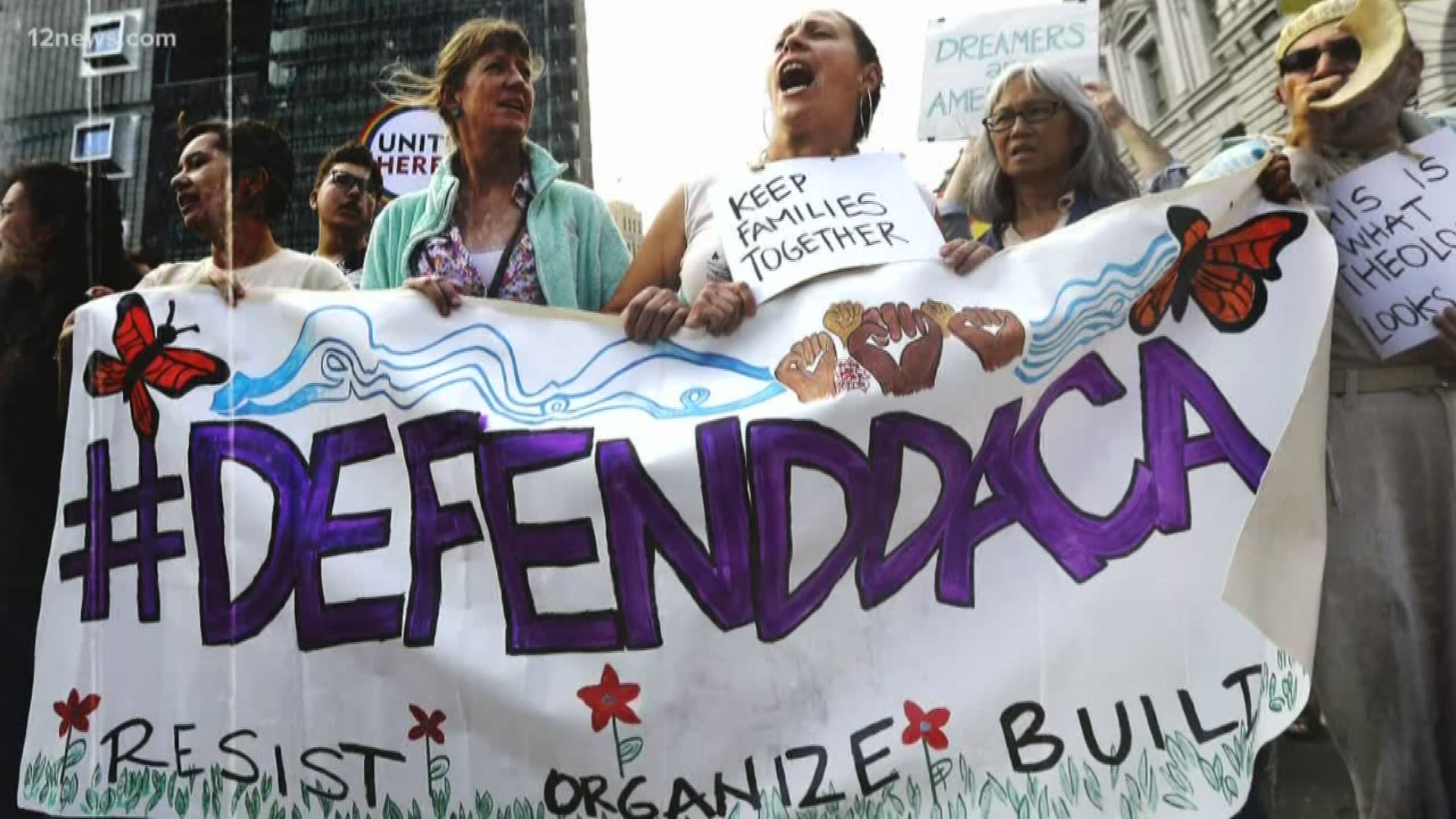PHOENIX — They're often called "DACA kids." But in most cases, they're not kids anymore, even though they were brought to the United States as children.
And Deferred Action for Childhood Arrivals, the Obama-era program shielding these undocumented immigrants from deportation, has been a mixed blessing.
"You can make a life after DACA only for two years," said 32-year-old Susana Nava, who qualified for the deferred action program when she was 25.
The $500 DACA work permit lasts two years before it has to be renewed. But there are no guarantees.
"I can't really expect to go into a relationship and have a family because I don't know what's going to happen two years from now."
As the U.S. Supreme Court considers whether to uphold President Donald Trump's order tossing out DACA, stories like Nava's provide a window on the unsettled lives of recipients, many of them in their 20s and 30s.
Nava gave up on her dream of becoming a school teacher after graduating from high school in the pre-DACA era.
"I looked out and I didn't really have where to go to," she said.
Now working as a loan officer, Nava's biggest dreams are for her 17-year-old sister, who was born in the U.S.
Nava is saving to send her to the college that she couldn't attend after high school.
"That's my hope: that what my parents sought out for me, that I'm able to provide that for my little sister," she said.
The U.S. Supreme Court's decision on the fate of DACA is expected sometime in spring 2020.

